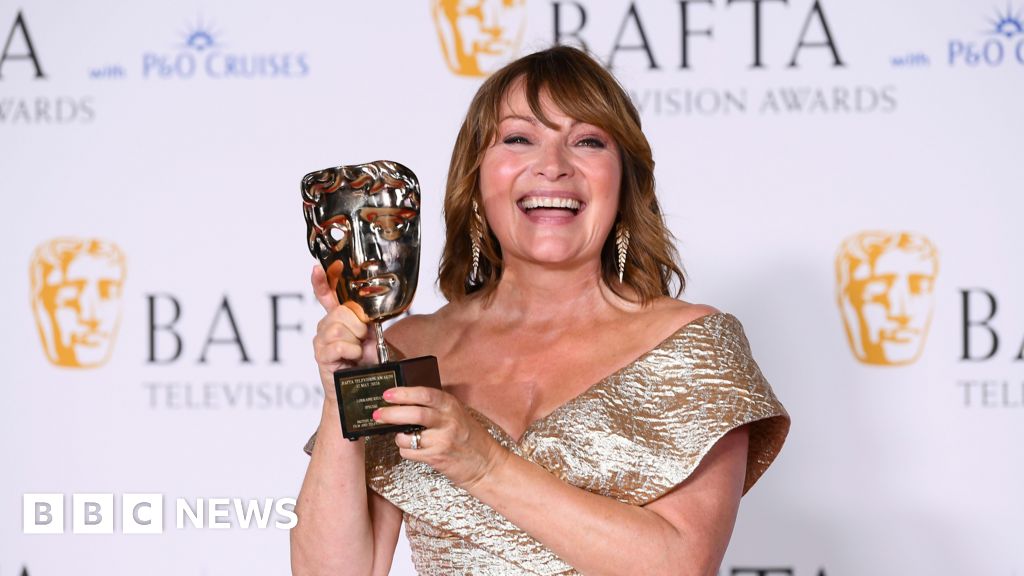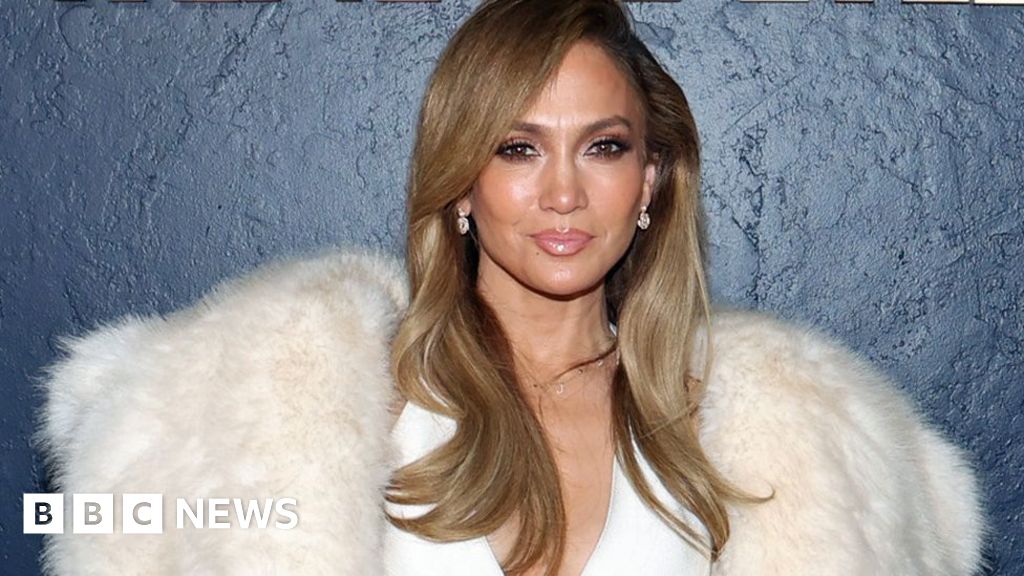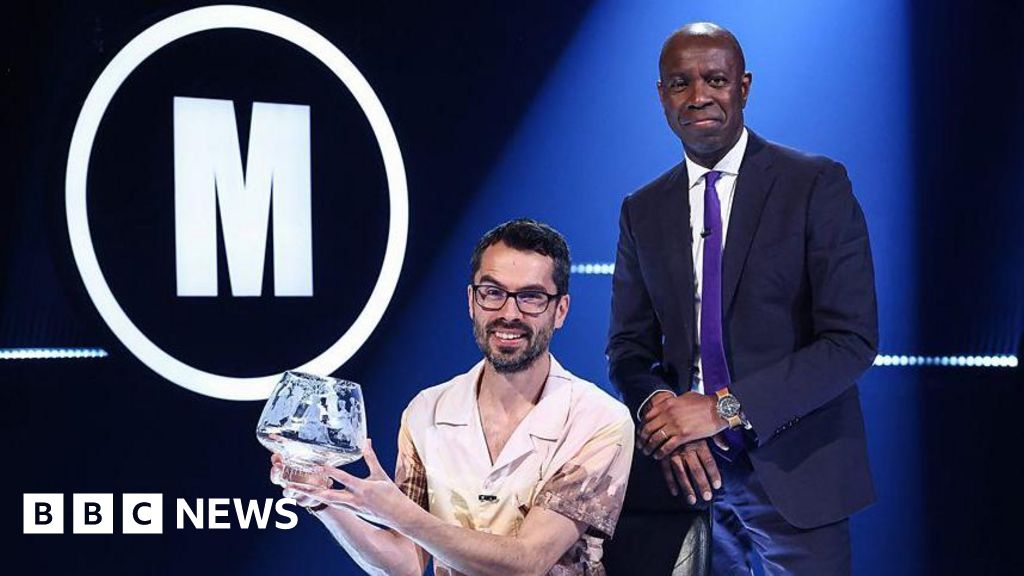ARTICLE AD BOX
Watch the moment Olivia Dean found out she'd won BBC Introducing Artist of the Year
By Pete Allison & Riyah Collins
BBC Newsbeat
Olivia Dean doesn't strike you as someone that would ever feel like "the odd one out".
She's had a top four debut album, played Glastonbury, been nominated for a Mercury Music Prize and has just been named BBC Introducing's Artist of the Year.
When she speaks to BBC Newsbeat she's in a Los Angeles hotel, where she's staying during her sold-out US tour.
But popularity wasn't something Olivia took for granted when she was growing up in Highams Park, north east London.
She has Guyanese and Jamaican heritage and was one of only a few black girls in her class.
Olivia, who's now 24, says she was "muted" - straightening her hair and trying to assimilate with all the other girls.
"I didn't quite know who I was," she says.
One thing she never doubted was her love of music, singing in assemblies "all the time" and, thanks to her supportive parents, bagging a place at the prestigious Brit School performing arts college.
She says that's where she found her tribe.
Olivia then got her big break as a backing singer with Rudimental, and says the decision to leave was a difficult one.
"I didn't really know if I could do it by myself," she says.
But, looking back, she probably didn't need to worry.
Image source, Getty Images
Image caption,"I'm quite an old soul" - Olivia lists Motown, Carole King and Lauryn Hill among her inspirations
Her first album, Messy, was nominated for a Mercury prize - which she describes as "a pure curve ball".
Success has kept her busy - as well as playing Glastonbury she's also performed on Later... With Jools Holland (which she described as "a dream") and covered Beyoncé in the Radio 1 Live Lounge (she "loves a challenge").
But it's also brought up feelings of imposter syndrome and wrestling with her identity again - such as feeling pigeon-holed when her single UFO was added to R&B playlists.
"There's no rhythm, there's no drums in it, so how can it be rhythm and blues?" she says.
"If I looked differently, I don't think it would have been put in that category.
"It's very confusing, especially for young women in the industry. You feel like everybody else knows - or they think they know - better."
Olivia tells Newsbeat her experiences have taught her that being in control of her own sound is a priority.
"I don't have a problem with people thinking I'm difficult," she says.
"I just don't like being told what to do."
That doesn't mean she won't accept criticism - as long as it's constructive - "but at the end of the day, I need to do what's going to be best for me because it's my name on the tin.
"In many years' time, my grandkids are going to be listening to what I thought about the world and love and how I was feeling at the time."
Although her music takes her all over the world, Olivia says she's "London through and through"
Love, and the loss of it, is a huge inspiration for Olivia. Her album Messy, featuring singles including The Hardest Part and Dive, maps falling in love again after a break-up.
But the seeds of her songs also come from some unexpected places.
The clue's in the name for Ladies Room, which came out of an overheard conversation in a south London pub toilet.
Olivia recalls a woman standing at the sinks dishing out the advice: "Don't date a man 20 years older than you!".
The boyfriend wanted to go home but this girl wanted to party.
"The ladies bathroom can be a really crazy place," Olivia says. "Stories being shared, lip gloss thrown everywhere, gossip, drama."
And see if you can spot the inspiration for this lyric: "If you can't see my mirrors, then I can't see you".
"That is one of my favourite lyrics I've ever written," Olivia laughs. "And it is inspired by stickers on the back of trucks.
"That's what I believe so strongly about music, it's about the small things.
"There's little specific details that we all see every day. They carry so much meaning, you just have to look for it and almost inject it into them."
Image source, Getty Images
Image caption,Olivia Dean says she's manifested her milestones this year
Olivia's realised she works best in her comfort zone rather than being thrown in at the deep end.
She says she likes to chill with her team for a couple of hours before work, having long chats over cups of tea - a different approach to other artists who "work like athletes" but one that fits for Olivia.
"And then out of that, the seed of inspiration comes," she says. "What the song's going to be about, always it'll come in that conversation."
She says nurturing her mental health has been an important part of arriving at that realisation.
"Therapy has absolutely changed my life," she says.
"I think I was one of those people that had a bit of a stigma about it, where it was like, 'Well, I can't do therapy, because I don't have something particularly wrong or like crazy going on in my life'.
"I almost felt like undeserving of it."
But she says therapy has been about "really open communication, having a conversation where you're really listening and getting to the root of why you behave the way you do, why that thing made you feel that way".
With more dates on her tour next year, 2024 is set to be just as busy for Olivia, but if there's one thing she's dreaming of it's another set at Glastonbury.
"The sight of looking out at all those people on the festival stage is the most beautiful thing in the world," she says.
"I was really there in that moment and I hope I get to have another moment like that."

 1 year ago
47
1 year ago
47








 English (US) ·
English (US) ·